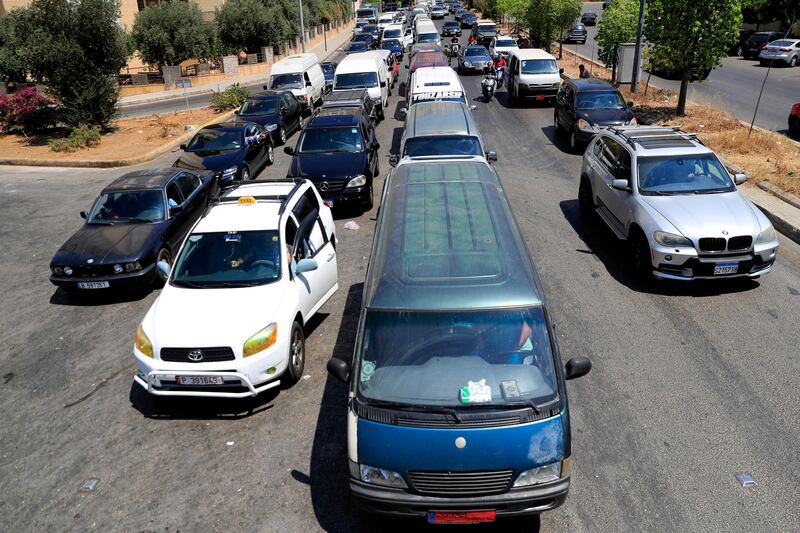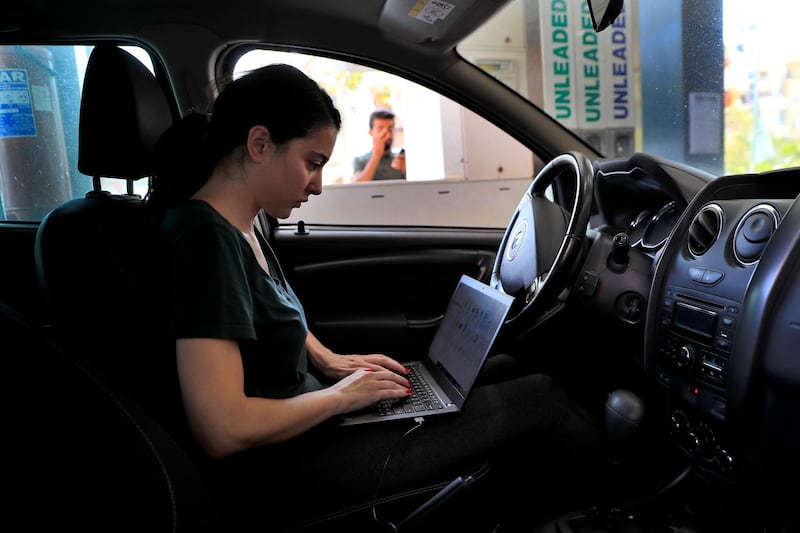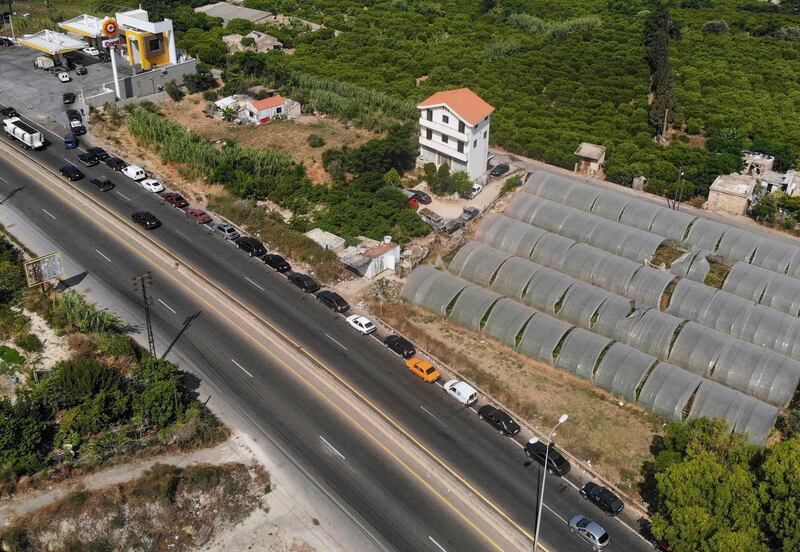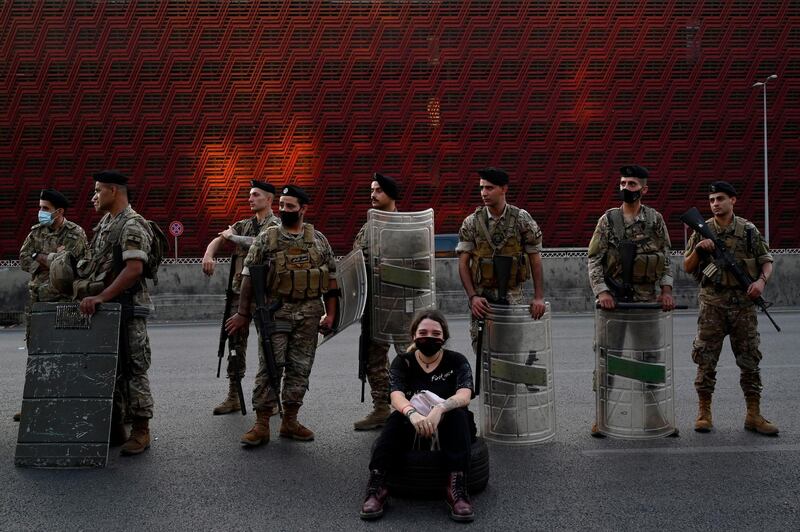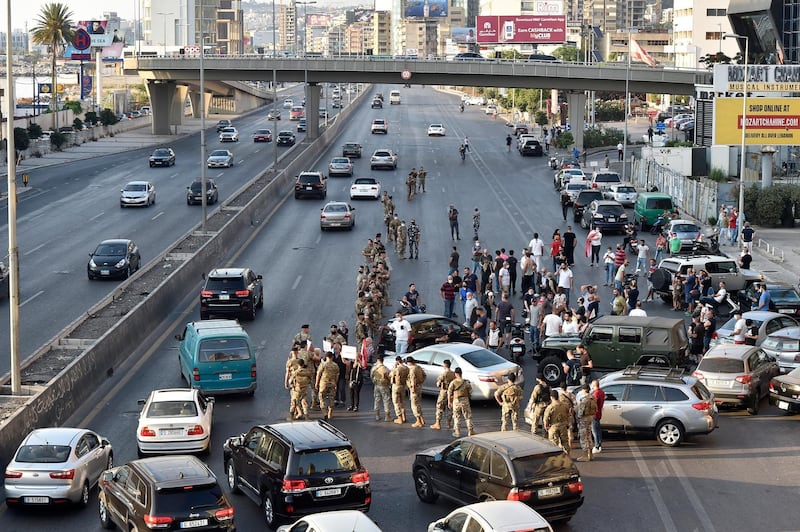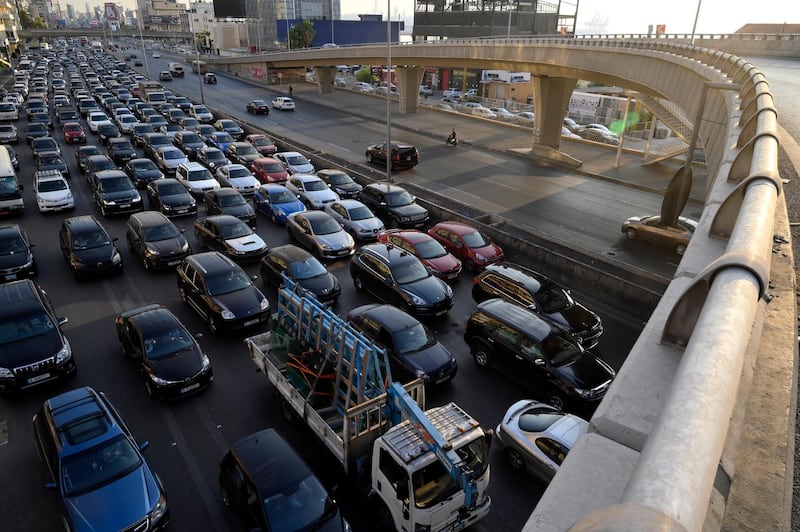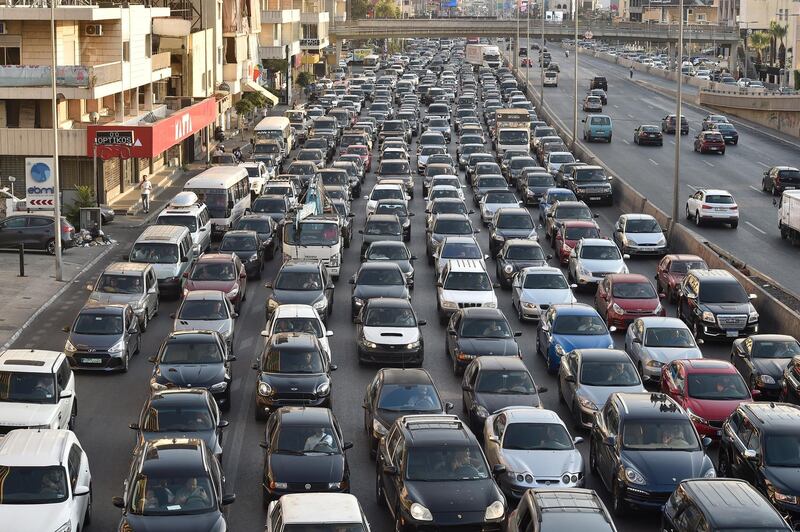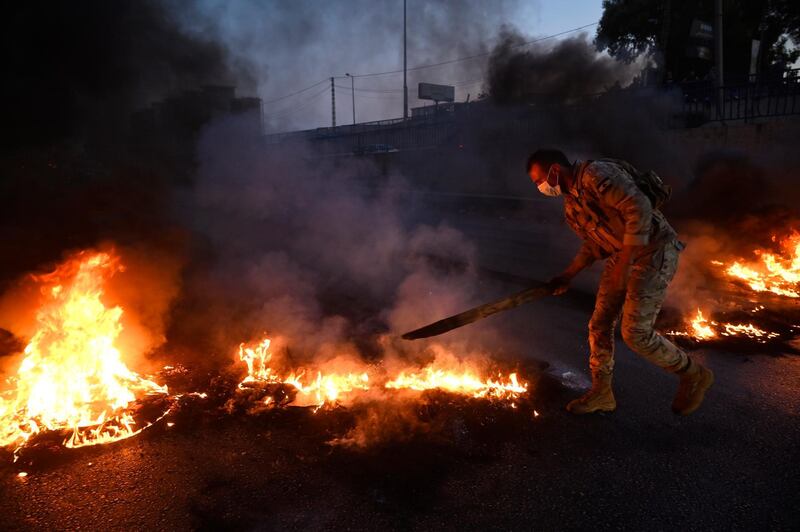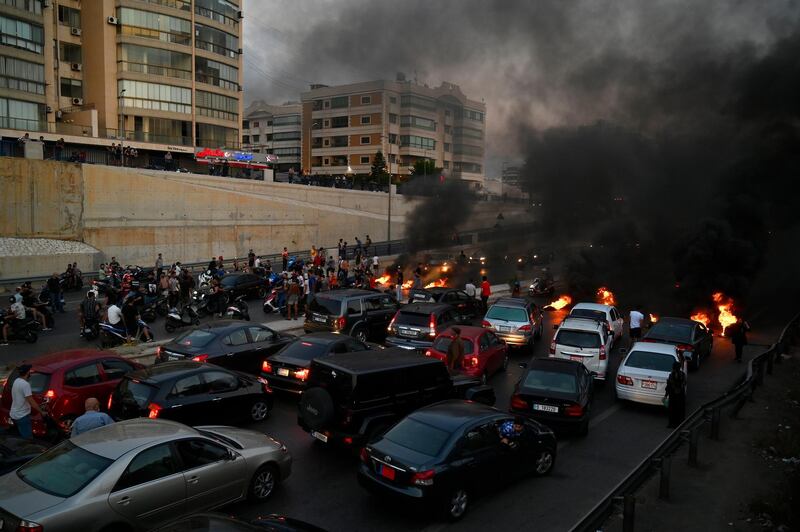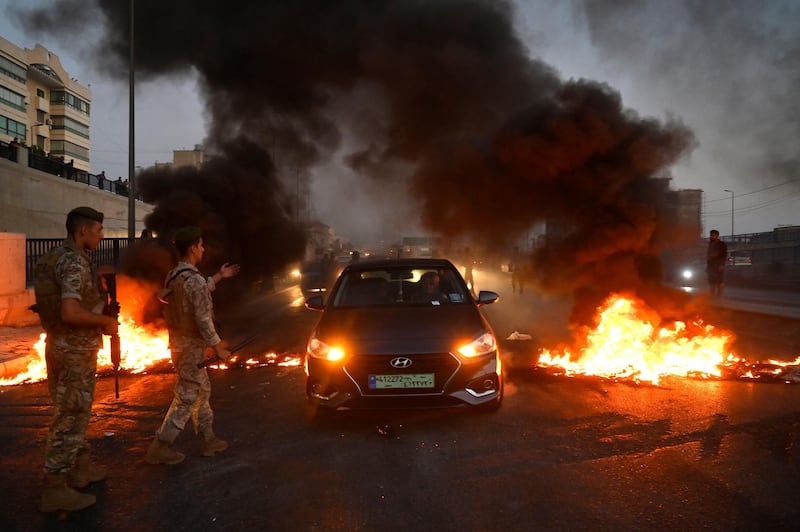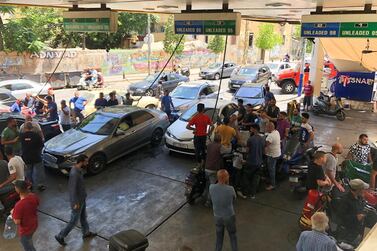Lebanon partially lifted subsidies on fuel imports amid a shortage of foreign currency that forced motorists to queue for hours at petrol stations across the country.
The move on Friday is expected to ease worsening fuel shortages that threaten to disrupt vital industries, but at a significant increase in cost for consumers.
Gas shortage in Lebanon fuelling unrest
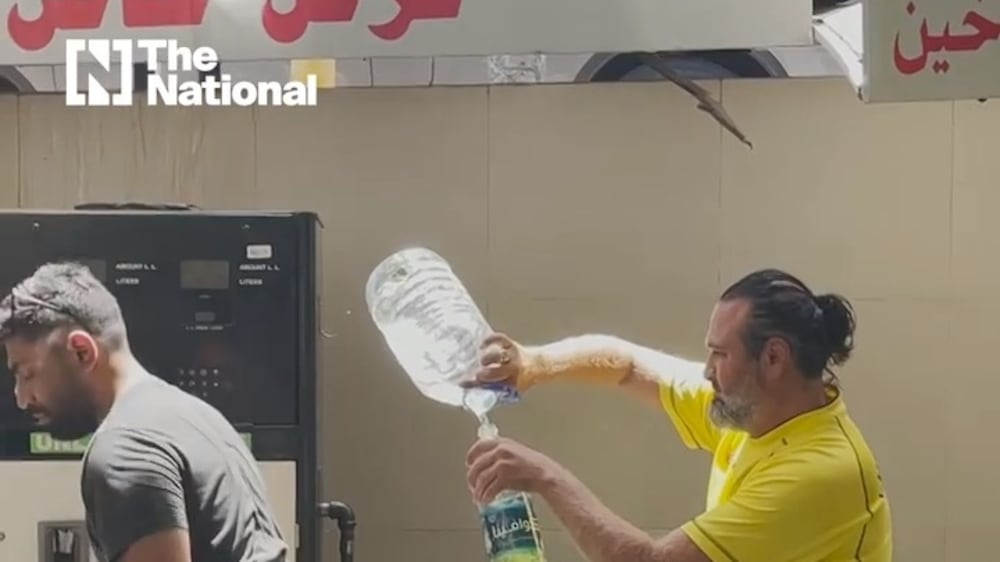
Caretaker Prime Minister Hassan Diab said he approved the proposal to finance fuel imports at the rate of 3,900 Lebanese pounds to the dollar instead of the official exchange rate of about 1,500.
The pound has lost more than 90 per cent of its market value since Lebanon’s worst economic and financial crisis in decades unfolded in late 2019. The pound hit a record low on Friday, trading at 16,000 to the dollar.
The crisis, which the World Bank says is one of the world's most severe since the 1850s, has plunged more than half the country's population into poverty.
People have taken to staging sporadic roadblocks across the country to protest against deteriorating living conditions and the lack of reforms to address the crisis.
The government’s latest decision would raise the price of 20 litres of petrol from 43,000 pounds to about 60,000 pounds, Fadi Abou Chakra, the head of the Lebanese fuel distributors' association, said.
Rising prices will, however, ensure fuel supply for the summer and "allow an increase in foreign currency inflows to Lebanon with the arrival of expatriates and tourists", Mr Diab said when announcing his decision on Friday.
The move follows an agreement between major political parties over a draft bill to provide cash assistance to low-income households, he said.
The bill's passage was delayed as legislators questioned how it would be financed amid dwindling foreign currency reserves that prompted the central bank to ration its subsidies of fuel and medical imports in recent months.
The central bank asked the government on Thursday for legal authorisation to continue subsidising fuel imports from mandatory foreign currency reserves.
Governor Riad Salameh said in March that the reserves, which represent a percentage of deposits parked at the central bank by commercial banks, stood at about $15 billion.
The liquidity crisis led to increased power and water cuts and internet blackouts as the government struggled to secure financing to fuel its electricity plants.
At the same time, operators of private diesel-powered generators used to compensate for state power rationing, reduced their supply to cope with diesel shortages.
On Thursday, hospitals said that shortages of fuel and medical supplies could force them to shut down if their fees are not adjusted to cover rising costs.
The economic crisis is accentuated by political paralysis that has left Lebanon without a government since the explosion that wreaked havoc across the capital last August.
The blast, which toppled Mr Diab's Cabinet, killed more than 200 people and destroyed thousands of properties across Beirut, inflicting damages worth billions of dollars.
Since then, the international community has pressed the country’s leaders to form a Cabinet that quickly enacts reforms in exchange for international financial support, but to no avail.
Ten months after the blast, President Michel Aoun and prime minister-designate Saad Hariri remain at loggerheads over the Cabinet's make-up and reform agenda.
